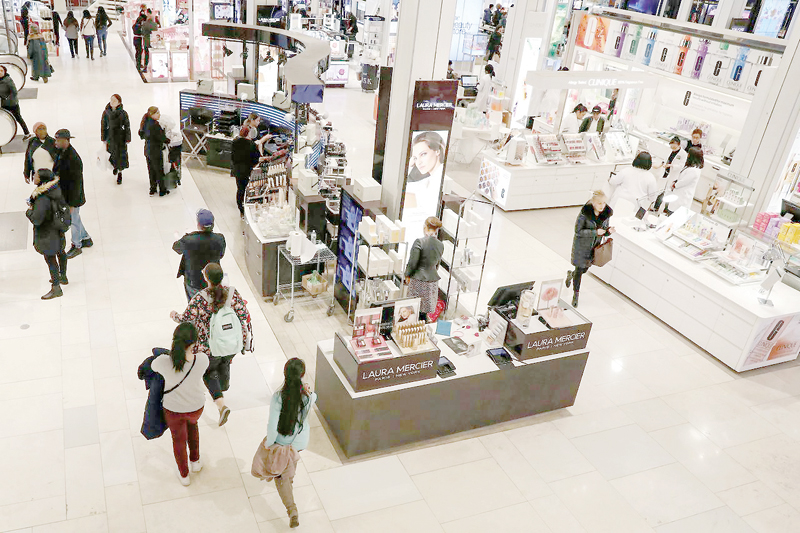

WASHINGTON: US consumer prices increased broadly in July, but the signs of an acceleration in inflation will likely do little to change market expectations that the Federal Reserve will cut interest rates again next month amid worsening trade tensions.
The report from the Labour Department on Tuesday could however, reduce the probability that the US central bank will cut rates by half a percentage point at its September 17-18 policy meeting.
Financial markets have fully priced in a 25-basis-point cut following a recent escalation in the bruising trade war between the United States and China, which sparked a stock market sell-off and caused an inversion of the US Treasury yield curve, heightening the risk of a recession.
Fears about the impact of the trade tensions on the US economic expansion, the longest in history, prompted the Fed to cut its short-term lending rate by 25 basis points last month for the first time since 2008.
“The recent pickup in inflation won’t deter the Federal Reserve from cutting interest rates in September as the downside risks to the outlook from trade have become more threatening,” said Ryan Sweet, a senior economist at Moody’s Analytics in West Chester, Pennsylvania.
The consumer price index increased 0.3 per cent last month, lifted by gains in the cost of energy products and a range of other goods, the government said. The CPI had edged up 0.1 per cent for two straight months. In the 12 months through July, the CPI increased 1.8 per cent after advancing 1.6 per cent in June.
Economists polled by Reuters had forecast the CPI would accelerate 0.3 per cent in July and rise 1.7 per cent on a year-on-year basis.
Excluding the volatile food and energy components, the CPI gained 0.3 per cent after rising by the same margin in June. The so-called core CPI was boosted by increases in prices for apparel, airline tickets, healthcare and household furnishings.
In the 12 months through July, the core CPI climbed 2.2 per cent, the biggest gain in six months, after rising 2.1 per cent in June.
The Fed, which has a 2 per cent inflation target, tracks the core personal consumption expenditures (PCE) price index for monetary policy. The core PCE price index rose 1.6 per cent on a year-on-year basis in June and has undershot its target this year.
US Treasury yields rose after the release of the CPI data while the dollar strengthened against a basket of currencies. US stock index futures extended losses.
Inflation has remained moderate despite the White House’s tariffs on Chinese imports as the duties have been largely on capital goods. That could change after President Donald Trump announced last month an additional 10 per cent tariff on $300 billion worth of Chinese imports starting Sept. 1.
The new tariffs would affect mostly consumer goods. Goldman Sachs estimates that tariffs have boosted year-on-year core PCE inflation by 10-15 basis points so far and that the new duties will add another 20 basis points.
In July, gasoline prices rebounded 2.5 per cent after dropping 3.6 per cent in June. Electricity rose 0.6 per cent. Food prices were unchanged for a second straight month. Food consumed at home slipped 0.1 per cent.
Owners’ equivalent rent of primary residence, which is what a homeowner would pay to rent or receive from renting a home, rose 0.2 per cent in July, the smallest gain since December 2018. Rents had risen by 0.3 per cent for six straight months.
Healthcare costs jumped 0.5 per cent, the most since August 2016, after advancing 0.3 per cent in June. There were increases in prices for hospital services, doctor visits and prescription medication. — Reuters
Oman Observer is now on the WhatsApp channel. Click here



